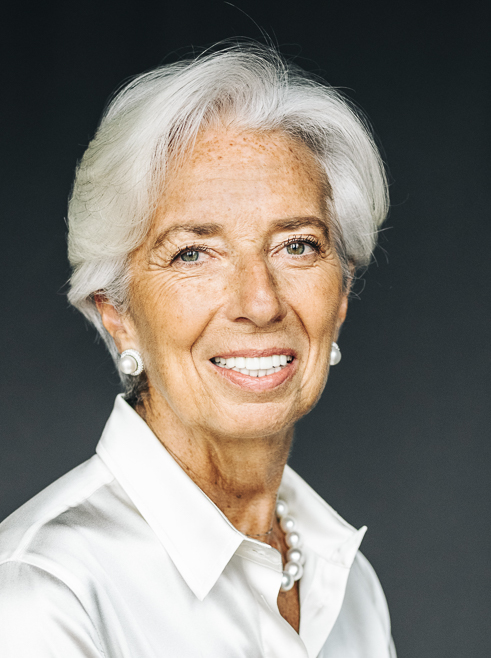- THE ECB BLOG
Painting the bigger picture: keeping climate change on the agenda
7 November 2022
If we do not account for the impact of climate change on our economy, we risk missing a crucial part in our work to keep prices stable, argues Christine Lagarde in the ECB Blog. This is the second entry in a series of climate related entries on the occasion of COP27.
A year ago, in his speech at COP26 in Glasgow, Sir David Attenborough asked us: “Is this how our story is due to end? A tale of the smartest species doomed by that all too human characteristic of failing to see the bigger picture in pursuit of short-term goals?” That question remains ever more pressing, and, worryingly, unanswered.
The world, and especially Europe, face a host of pressing challenges that require urgent attention, including from us at the European Central Bank: the economic fall-out from the coronavirus (COVID-19) pandemic, Russia’s invasion of Ukraine, and the cost-of-living crisis due to surging energy prices, to name just a few.
These challenges are complicated and painful, particularly for those struggling every day to make ends meet. As the guardian of the euro, we are fully committed to playing our part in common efforts to address them here and now. In particular, we are determined to do everything to ensure that inflation returns to our medium-term target of 2%. However, we must not lose sight of the challenges we will face tomorrow, and in the years to come.
Last summer, we were already confronted with record-breaking droughts across the globe, and with heatwaves and floods that caused suffering and damage across every continent. Science tells us that this is only a preview of the impact climate change will have on our planet. We also know that the only way to avoid the worst is to green our economy. We must reduce our greenhouse gas emissions all the way to net zero. If we do this early on, the long-term benefits will far outweigh the short-term costs of doing so.
Making our monetary policy fit for climate change
At the European Central Bank, our primary objective is to keep prices stable. That is the compass guiding every one of our actions, now more than ever. To deliver on this core responsibility, we need the full picture on all factors affecting inflation so that our policies remain effective.
Climate change is one of these factors, given its widespread effect on our economy. Extreme weather events can damage infrastructure, ravage harvests and disrupt supply chains. This can push up prices for key products and thereby fuel inflation, making it tougher for us to keep prices stable. By contrast, reinforced efforts to shift our energy supply towards more economical renewables should ultimately help to slow inflation.
If we do not account for the impact of climate change on our economy, we risk missing a crucial part of the overall picture. This means that our job of preserving price stability must include further work on better understanding how climate change affects our role. We must incorporate climate change into everything we do: our models, data, projections and analyses. Ultimately, we need to ensure that our monetary policy accounts for the impact of climate change.
Over the past year, we have moved beyond words and on to real action. We have adjusted our corporate bond holdings, collateral framework and risk management practices to better account for climate-related risks. As supervisors, we work to ensure that banks account for climate-related risks in their business and lending decisions. We also analyse the impact of climate change on the economy and financial stability. And naturally, we work to reduce the environmental footprint of our day-to-day corporate activities in line with the goals of the Paris Agreement.
With our work on climate change, we aim to better manage climate-related risks, support the green transition in line with the European Union’s net-zero objectives and foster wider action from others, always within our mandate.
Looking ahead: paving the way towards a greener economy
Speeding up the green transition has never been more important: surging energy prices have highlighted just how reliant we are on fossil fuels and how vulnerable this makes us. Harnessing the opportunity to push ahead with a timely shift of our energy system towards more renewable energy would not only make our economy greener and more self-sufficient, but it would also reduce the risk of spikes in energy prices. The resulting lower and more stable inflation rates would make our economies work better for the benefit of all.
Of course, we cannot do this alone. All of us need to work hard to lay the groundwork for a greener and brighter world. International cooperation and transparency will be key to achieving this long-term transformation. Pricing in the negative effects of carbon, plentiful investment in innovative green technology and climate adaptation, consistent and comparable climate-related disclosures and clear and timely transition paths with intermediate milestones are just some of the tools that we can use to green our economy. If we all know about the processes at work and are transparent about the true costs of climate change and the benefits of the green transition, people and businesses will understand that changing their behaviours and practices is not just good for the planet, but also makes simple economic sense.
We must do everything in our power to prevent Sir David’s worst fears from coming true. We must make sure that we can turn the page and continue our story. In doing so, may we also find encouragement in his words: “If working apart we are forces powerful enough to destabilise our planet, surely working together we are powerful enough to save it.”
Subscribe to the ECB blog


